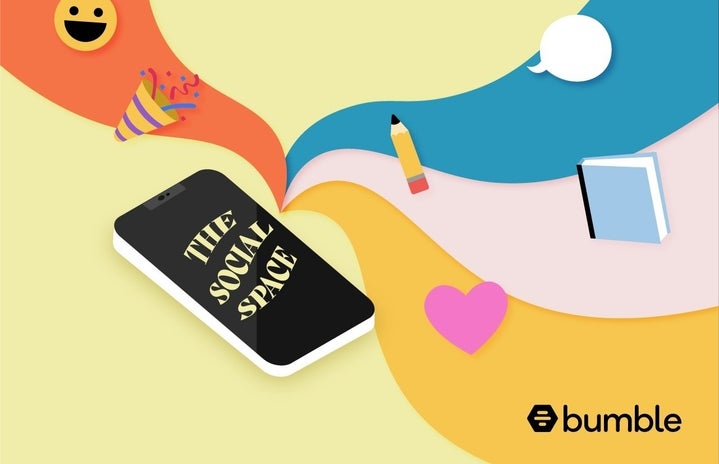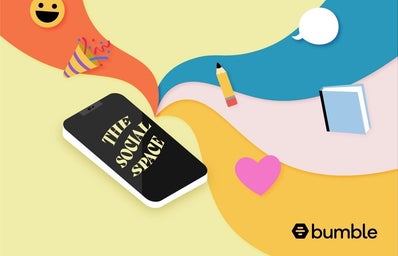In 2021, the marketplace of dating apps is certainly overcrowded, meaning app creators need to push a strong unique selling point in order to get a slice of the cake. Users of Hinge structure their profiles around three prompts aimed at starting a conversation. On Tinder, people can only communicate if they have both swiped right on one another, while OkCupid uses multiple-choice questions to make matches (and the list goes on). When it entered app stores in December 2014, Bumble grabbed attention for its distinctive requirement that women must message first against a 24-hour timer.
Founder and CEO Whitney Wolfe Herd–who was previously the VP of Marketing at Tinder–created the app with the intention of creating an empowering online space for women. Not only is it dubious why this space of ‘empowerment’ would best take place in the context of a dating app, but Bumble’s ethos is also a problematic echo of white liberal feminism and is painfully heteronormative.
It is important to point out that since its creation, Bumble is no longer an app solely centred on dating–there are now features to allow users to network as well as find friends. Nevertheless, Bumble still appears to be rooted in its history. This autumn they launched their #justgoforit marketing campaign fronted by actress Aimée Lou Wood (who you may know as Aimee from the Netflix series Sex Education). The marketing campaign is a not-so-subtle spin-off of their original philosophy, advocating for women to make the first move on the grounds that it is empowering to do so.
Let me be clear, I am by no means suggesting there is anything wrong with messaging a man on a dating app first. If you find confidence in doing so, then go for it, break those gender norms. The reason that their marketing is problematic is because Bumble is making a lot of money by perpetuating painfully heteronormative (and outdated) ideas about who should make the first move in heterosexual relationships. And unfortunately, this is not the first time they have done so. In March 2021 the #allourmoves marketing campaign somehow managed to reduce the importance of International Women’s Day into the liberation and ‘girl boss’ attitude of messaging a man first on a dating app.
It is worth pointing out that Bumble seems to be aware of their dependence on cultural heterosexual norms. For those using the app to make friends, network, or pursue same-sex relationships, there is no requirement of who should message the other first. And yet despite clinging to a mantra of female liberation, I think it is unfair to generalise that all the women using Bumble in their dating lives close the app actively thinking, “wow, I feel so empowered right now!”
Bumble’s claims to female empowerment seem harmless at first glance, but when we take a closer look, one can see that it is an empty manipulation of surface-level white liberal feminism tapping into the insecurity of women to be desired by men–essential to capitalism. Regardless of the authenticity of Wolfe Herd’s intentions for her dating app, Bumble’s unique selling point is nothing more than a soulless marketing of feminism for healthy profit margins.


